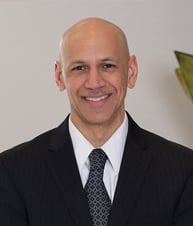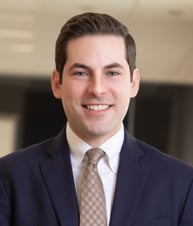The Supreme Court has repeatedly recognized students’ right to free speech, including in times of crisis. In a 1972 case, Healy v. James, for example, the Court affirmed that the First Amendment protects the right of student groups to associate and to speak out on matters of public concern, free from censorship by public university officials. As the Court stated in Healy: “[N]owhere is free speech more important than in our leading institutions of higher learning.”
With the rise of social media and ongoing civil and political unrest across the globe, First Amendment concerns have become more fraught with peril for colleges and universities tasked with enforcing policies and procedures, responding to complaints, and encouraging civil discourse—all while respecting the First Amendment rights of their faculty and students.
Two recent court cases, Porter v. Board of Trustees of North Carolina State University (decided in the Fourth Circuit) and Students for Justice in Palestine at the University of Florida v. Rodrigues (decided in the Northern District of Florida) demonstrate the gamut of First Amendment issues facing colleges and universities today.
Porter v. Board of Trustees of North Carolina State University
The facts
Tenured professor Stephen Porter filed suit against North Carolina State University in the Eastern District of North Carolina, alleging that NC State retaliated against him in violation of the First Amendment for being critical and “outspoken” about diversity, equity, and inclusion efforts in the NC State College of Education, the college’s Higher Education Program Area (HEPA), and, more broadly, the field of higher education. Porter claimed that, after three different “incidents”—an in-person incident at a department meeting that resulted in Porter being labeled a “bully,” a department-wide email he sent criticizing a colleague, and a personal blog post he drafted calling a professional organization in the higher education field a “Woke Joke”—he was removed from HEPA (and his associated student advising role), excluded from a new program, and required to teach an extra course. NC State argued that Porter was not removed from his student advising role because of his statements, which were unprotected by the First Amendment. Rather, he was removed for his lack of collegiality.
The holding
The district court sided with NC State, dismissing Porter’s claims for First Amendment retaliation. Following dismissal, Porter appealed to the Fourth Circuit. The Fourth Circuit affirmed the dismissal, finding that Porter’s comments to colleagues about department operations were not protected by the First Amendment.
Of particular importance for the Fourth Circuit, when Porter acted in his capacity as an employee, the disputed speech was neither a product of his teaching or scholarship nor expressed a viewpoint. Porter’s speech addressed matters of personal interest, not matters of public concern. Moreover, the Fourth Circuit found that even if his “Woke Joke” blog post were protected speech, Porter failed to establish a causal connection between the blog post and his removal, in part due to lack of temporal proximity.
On January 22, 2024, the Supreme Court denied certiorari without comment.
Students for Justice in Palestine at the University of Florida v. Rodrigues
The facts
On October 24, 2023, in the wake of Hamas’s attack in Israel and a spike in antisemitic hate crimes across the United States, State University System of Florida Chancellor Ray Rodrigues released a memorandum ordering public universities in Florida to deactivate their Students for Justice in Palestine (SJP) chapters. This deactivation memo suggested that the National SJP’s statements supporting Hamas violated Florida’s criminal law against providing material support to designated foreign terrorist organizations and concluded that, “[b]ased on the National SJP’s support of terrorism, in consultation with [Florida] Governor [Ron] DeSantis,” the two Florida “student chapters must be deactivated.”
In response, the University of Florida’s SJP chapter—supported by the ACLU, the ACLU of Florida, and Palestine Legal—sued Rodrigues, the State University System of Florida Board of Governors, and DeSantis in the Northern District of Florida. The lawsuit alleged that the deactivation memo constituted a clear violation of Florida SJP student-members’ First Amendment right to free speech and association and sought a preliminary injunction.
The holding
The court, following oral argument, denied UF SJP’s motion for preliminary injunction and granted the defendants’ motion to dismiss the case. In denying the preliminary injunction, the court noted that student members of UF’s SJP chapter were still meeting and speaking out, finding that the deactivation memo did not have the “chilling effect” that the complaint claimed:
In short, the record demonstrates that neither deactivation nor criminal investigation is imminent. Instead, this Court finds that no actions have been taken in pursuit of deactivation under the Chancellor’s memorandum. And, as this Court has already found, the Defendants with legal authority to directly regulate registered student organizations do not intend to deactivate [UF’s SJP chapter].
In conclusion, the court found that UF SJP’s claims failed because the evidence showed that deactivation of the chapter was “simply an amorphous threat.”
The Takeaways
These high-profile faculty and student First Amendment cases provide guidance to colleges and universities:
- Be ready for legal scrutiny of any alleged “chilling effect.” As these cases suggest, courts are ready and willing to peer beyond the pleadings and scrutinize any alleged violations of First Amendment rights. Porter v. NC State reiterates the importance of timely, thorough, and detailed documentation supporting the institution’s legitimate, nondiscriminatory reasons for taking any adverse employment action.
- A legal win is not always the end. After UF SJP v. Rodrigues was dismissed, the UF SLP publicly threatened further legal action if the deactivation order was ever enforced. And despite decisive wins for NC State at the district court and the Fourth Circuit, Porter appealed all the way to the Supreme Court. Ultimately, a legal victory does not dispel scrutiny from impact litigation groups, calm tensions on campus, or prevent a prolonged appellate fight. This reality may factor into litigation or settlement strategy.
- Political pressure can come from either end of the political spectrum. In UF SJP v. Rodrigues, the University of Florida found itself in the unenviable position of receiving a written directive issued by the chancellor of their university system and the governor—while also receiving pushback and criticism from current students and national public interest organizations. Likewise, Porter v. NC State drew the attention and scrutiny of mission-driven organizations that track First Amendment issues, such as the Foundation for Individual Rights and Expression. The reality is that many First Amendment issues run the risk of drawing extensive publicity and vocal outcry from supporters and detractors. It is important to consider these non-litigation realities before taking any step that implicates the First Amendment.

